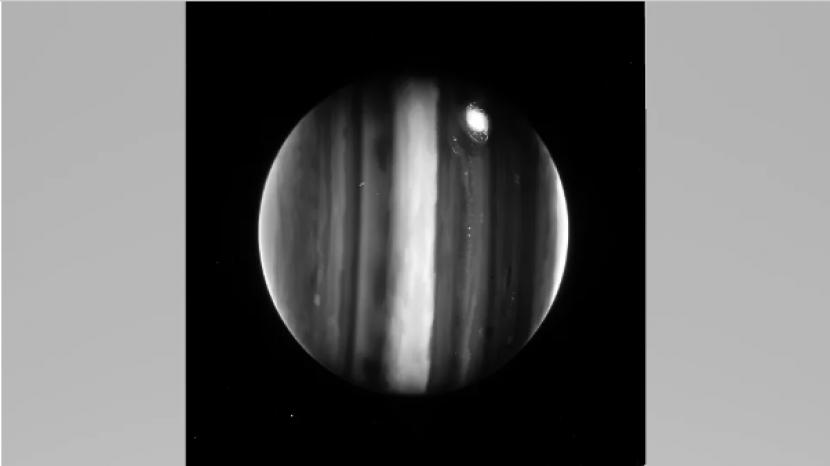Image highlights Jupiter’s major storm, the Great Red Spot.
REPUBLIKA.CO.ID, JAKARTA — The American Space Agency (NASA) released several images of the James Webb telescope (JWST) of Planet Jupiter. The image was taken on July 14, but the telescope continues to revisit the planet to demonstrate the potential of JWST in studying our own solar system as well as the distant universe.
That potential is shown in the raw image (raw image) taken by the telescope’s Near Infrared Camera (NIRCam) instrument on July 27, 2022. The image highlights Jupiter’s massive storm, the famous Great Red Spot, and swarms in the planet’s atmosphere.
The image, along with other Webb observations, is designed to help scientists understand Jupiter’s atmosphere. The image is also expected to help characterize the structure and thermal layers in Jupiter as well as studying phenomena such as winds and aurorae.
Reported from SpaceSunday (31/7/2022), to create a new image, NIRCam stared at Jupiter for nearly 11 minutes using what scientists call the F212N filter, which observes light having a wavelength of 2.12 microns, about the length of ordinary bacteria. .
According to an initial schedule released by the Space Telescope Science Institute in Maryland, which operates JWST, next week the observatory is expected to reveal the volcanic phenomenon Jupiter Io, the massive asteroid Hygeia and the remnants of the supernova Cassiopeia A.
However, the observation schedule is always subject to change. In addition, not all JWST data can be published immediately. Sometimes, scientists who request the data are granted special access for a year to facilitate their analysis.
–
–


